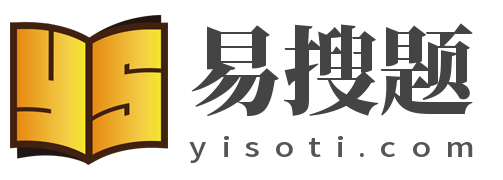阅读文本材料和具体要求,回答第19~21题。李白《蜀道难》原文噫吁嚱,危呼高哉!蜀道之难,难于上青天!蚕丛及鱼凫,开国何茫然!尔来四万八千岁,不与秦塞通人烟。西当太白有鸟道,可以横绝峨眉巅。地崩山摧壮士死,然后天梯石栈相钩连。上有六龙回日之高标,下有冲波逆折之回川。黄鹤之飞尚不得过,猿猱欲度愁攀援。青泥何盘盘,百步九折萦岩峦。扪参历井仰胁息,以手抚膺坐长叹。问君西游何时还?畏途巉岩不可攀。但见悲鸟号古木,雄飞雌从绕林间。又闻子规啼夜月,愁空山。蜀道之难,难于上青天,使人听此凋朱颜!连峰去天不盈尺,枯松倒挂倚绝壁。飞湍瀑流争喧飓,冰崖转石万壑雷。其险也如此,嗟尔远道之人胡为呼来哉!剑阁峥嵘而崔嵬,一夫当关,万夫莫开。所守或匪亲,化为狼与豺。朝避猛虎,夕避长蛇,磨牙吮血,杀人如麻。锦城虽云乐,不如早还家。蜀道之难,难于上青天,侧身西望长咨嗟!课文介绍本课文选自某版高中语文教材必修3第二单元第一课,同单元另外三篇课文为《杜甫诗三首》《琵琶行并序》《李商隐诗两首》。单元说明这个单元学习唐代诗歌。唐代是我国封建社会的鼎盛时期,政治开明,经济繁荣,文化上兼容并包,音乐、绘画、书法等艺术有了长足的发展,这些都从不同方面对诗歌创作产生了积极影响;同时,诗歌本身的发展也趋于成熟,题材扩大,诗体完备,诗家辈出,风格多样。唐诗体现了我国古典诗歌创作的最高成就,具有极大的社会认识意义和审美价值。学习这个单元,要在理解诗意的基础上,进入诗歌的情境,感受古代社会生活与古人的情感世界,领略古人的独特审美情趣;要注意联系不同时期、不同创作背景和不同的创作风格的解读,注意在朗读背诵中提高对诗歌思想内容和艺术旨趣的感悟能力。《普通高中语文课程标准(2017年版)》的相关要求精读古今中外优秀的文学作品,感受作品中的艺术形象,理解欣赏作品的语言表达,把握作品的内涵,理解作者的创作意图。结合自己的生活经验和阅读写作经历,发挥想象,加深对作品的理解,力求有自己的发现。根据诗歌、散文、小说、剧本不同的艺术表现方式,从语言、构思、形象、意蕴、情感等多个角度欣赏作品,获得审美体验,认识作品的美学价值,发现作者独特的艺术创作。阅读古今中外文学作品,注重审美体验,能感受形象,品味语言,领悟作品的丰富内涵,体会其艺术表现力;努力探索作品中蕴含的民族心理和时代精神,了解人类丰富的社会生活和情感世界,增强民族文化自信。学生情况高二年级第一学期,班额45人。教学条件教室配有多媒体设备,能够演示PPT,播放音频、视频文件,投影实物。问题:根据上述材料,确定本篇课文的教学目标,并具体说明依据。(不能照抄材料)
相关问题推荐
-
教学《中国建筑的特征》前,教师播放了一段《林黛玉进贾府》的影视作品视频,并对其中的建筑格局进行了简单补充描述,从而引导学生初步体会中国古代建筑平面布局的特点。下列对该教师教学行为的分析,不正确的一项是()。
A、变抽象为具象,限制了学生的想象
B、温故而后知新,感知建筑整体特点
C、导入方式新颖,有效提升学习兴趣
D、过多引入旧课,课程安排喧宾夺主
-
下列选项中不属于《义务教育数学课程标准(2011年版)》中“统计与概率”领域学习内容的是( )。
A、掌握基本的统计概念:统计图、加权平均数、众数、中位数、平均数、方差,频数、频率、频数分布、频数分布直方图和频数折线图、抽样等
B、了解独立性检验的基本思想、方法及初步应用
C、能够根据问题的需要,有效地从事收集、整理、描述和分析数据的活动
D、能解释统计数据,根据结果作出简单的判断和预测,并进行交流
-
Passage1Do who choose to go on exotic,far-flung holidays deserve free health advice before they travel?And even if they pay,who ensures that they get good,up-to-date information?Who,for that matter,should collect that information in the first place?For a variety of reasons,travel medicine in Britain is a responsibility nobody wants.As a result,many travellers go abroad prepared to avoid serious disease.Why is travel medicine so unloved?Partly there's an identity problem. Because it takes an interest in anything that impinges on the health of travelers ,this emerging medical specialism invariably cuts across the traditional disciplines. It delves into everything from seasickness,jet lag and the hazards of camels to malaria and plague. But travel medicine has a more serious obstacle to overcome. Travel clinics are meant to tell people how to avoid ending up dead or in a hospital when they come home,but it is notoriously difficult to get anybody pay out money for keeping people healthy.Travel medicine has also been colonized by commercial interests; the vast majority of travel clinics in Britain are run by airlines or travel companies. And while travel concerns are happy to sell profitable injections, they may be less keen to spread bad news about travellers' diarrhea in Turkey, or to take time to spell out preventive measures travellers could take."The NHS finds it difficult to define travellers' health,"says Ron Behrens,"the only NHS consultant in travel and director of the travel clinic of the Hospital for Tropical Diseases in London."Should it come within the NHS or should it be paid for?"It's Gary area, and opinion is spilt. No one seems to have any responsibility for defining its role,"he says.To compound its low status in the medical hierarchy, travel medicine has to rely on statistics that are patchy at best. In most cases we just don't know how many Britons contract diseases when abroad. And even if a disease linked to travel there is rarely any information about where those afflicted went, what they are, how they behaved, or which vaccinations they had. This shortage of hard facts and figures makes it difficult to give detailed advice to people, information that might even save their lives.A recent leader in British Medical Journal argued."Travel medicine will emerge as credible disciplines only if the risks encountered by travellers and the relative benefits of public health interventions are well defined in terms of their relative occurrence, distribution and control."Exactly how much money is wasted by poor travel advice. The real figure is anybody's guess, but it could easily run into millions. Behrens gives one example. Britain spends more than £ 1 million each year just on cholera vaccines that often don't work and so give people a false sense of security."Information on the prevention and treatment of all forms of diarrhea would be a better priority," he says.What does the author mean by saying… but it is notoriously difficult to get anybody pay out money for keeping people healthy."(Para.2)?
A、People don't pay attention to their health.
B、Few people are willing to support travel medicine.
C、Most travellers firmly believe that they will be safe.
D、Health comes last compared with others.
-
教学《失街亭》时,教师为了引导学生找到“破解马谡之‘急’的密码”,使用了下列两个教学补充材料,阅读并按要求答题。(材料一)马谡履历表 (1)出道,为刘备的败军煎茶熬汤,成功引荐自己。当时仅二十几岁。(2)公元223年,刘备白帝城留遗言告诫诸葛亮:马谡言过其实,不可大用。(3)公元223年,为诸葛亮献策,对孟获“但服其心足矣”,才有“七擒七纵”的历史佳话。得诸葛亮赏识,升为参军。(4)成功策划反间计,离间曹睿与司马懿君臣关系,愈得诸葛亮赏识。(5)公元229年,失街亭,被斩。时年39岁。(材料二)诸葛亮出征将领表前督部——魏延;前军都督——张翼;牙门将——王平;后军领兵使——李恢,副将——吕义;兼管运粮左军领兵使——马岱,副将——廖化;右军领兵使——马忠;行中军师——刘琰;中监军——邓芝;中参军——马谡;前、左、右、后将军——袁綝、吴懿、高翔、吴班;前、左、右、后护军——许允、丁咸、刘敏、官雝;行参军——胡济、阎晏、爨习;丞相令史——董厥;帐前左右护卫使——关兴、张苞。对上述材料的使用分析不恰当的是( )
A、引入资料恰当,能够引导学生“破解马谡之‘急’的密码”
B、教师对课外教学资源的开发合理,为学生理解课文提供了依据
C、由第一则材料可以看出,马谡绝非等闲之辈,暗示他的失败仅从轻敌、大意、狂妄上去找原因不够透彻
D、两则材料的使用重复,引导学生探索问题答案的角度一致
-
音乐课程教学的过程与方法主要包括体验、模仿、探究、()和综合五个方面。
A、聆听
B、联想
C、合作
D、创造
